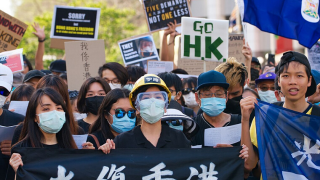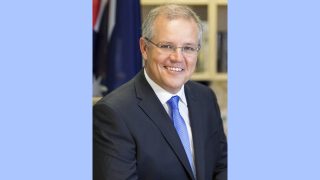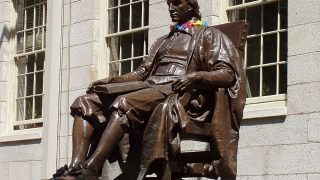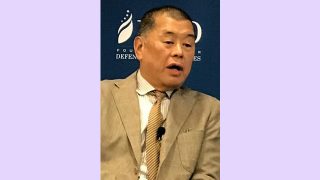HONG KONG – The driver for local Hong Kong media outlet Now News parked his van near the Mong Kok police station on Oct. 14 as the crew readied to cover another night of protests. As protesters hurled Molotovs, the driver, who identified himself only as Mr. Lau, was felled by a beanbag round in the head, according to the broadcaster. Officers bound his hands and left the man face down. A cameraman captured the scene, a neon press vest crumpled on the ground nearby, and was threatened when he tried to aid his colleague.
Inside the police station, police used batons to hit Lau’s head, arms and legs. His employer said he received nine injuries, including ones to the forehead, elbows, legs, palms and chin. After two hours, he was taken to the hospital and admitted for surgery on a broken jaw.
Since mass protests against the government began in June, journalists have faced mounting obstructions and challenges. Earlier this month, The Hong Kong Journalists Association asked the courts to find that Police Commissioner Stephen Lo, along with the Secretary of Justice, have engaged in illegal actions that have hindered reporting in recent months. They asked the court to stop such actions and order an independent inquiry into complaints against the police. The latter is one of the so-called five demands that protesters pressing for greater autonomy from China have cited since June.
“The HKJA has brought these issues to the attention of the Commissioner of Police and the government, through numerous public statements and a raft of complaints lodged with the Commissioner from members of the HKJA and the Hong Kong Photojournalists Association,” the journalists association said in a statement. “The Commissioner of Police and the [Hong Kong] Government have however failed to take any effective steps to remedy the situation and ensure compliance with the constitutional and public law duties of the police with respect to freedom of the press.”
Police response
The police force has repeatedly said since June, that protesters have escalated and spread violence, including attacks on police officers.
“The Hong Kong Police fully respect press freedom and the right of the media to report and record the Police at work,” the force’s media affairs office said in a written statement. “The Police will facilitate the work of the media as far as practicable with the proviso that the Police’s lawful duties are not compromised.”
The association has logged dozens of incidents when journalists were not just prevented from covering the protests, but were targeted by police with tear gas and other rounds, hit with batons and, in one case, arrested, many of which happened after the judicial review was sought.
As for Lau, a police official said officers tied his hands for safety reasons and would investigate the incident. “We are sorry for the misunderstanding in communication during this incident,” said Police Public Relations Bureau Acting Chief Superintendent Kong Wing-cheung at a news conference the following day.
Police identities
Besides attacks on reporters, the association is also fighting to bar the government from withholding the identities of police, something that has become routine here.
The association has objected after prosecutors asked magistrates to issue gag orders barring reporters from disclosing names of police officer witnesses in criminal cases. The applications, if granted, would prevent news organizations from identifying police witnesses, which would interfere with legal rights to fair and public hearings, according to a statement issued by the association, three news outlets and other media groups.
“We also believe these steps by prosecutors to prohibit the publication of the names and service numbers of ordinary police witnesses in magistracy proceedings, is unprecedented and should be of great concern to all Hong Kong people who value press freedom, open justice, accountability and transparency.”
Source: Voice of America



